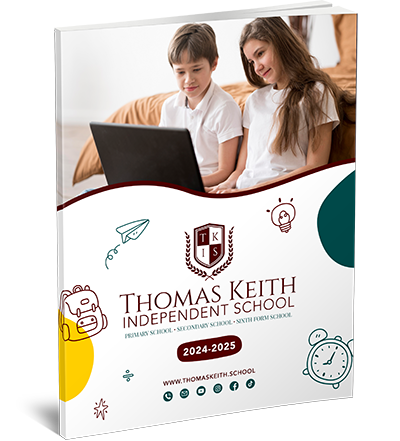
Key Stage 3 French
Complete Guide for Key Stage 3 French
Key Stage 3 (KS3) French offers pupils between the ages of 11 and 14 an interesting introduction to the French language and culture. This is a required level that promotes fundamental language competency to enable students for GCSE and beyond language studies. The skills taught as well as the KS3 French framework will be covered in this post together with how Thomas Keith Online Independent School supports French study for students.
1. important stage three French is the language used in Students signing up for Key Stage 3 French classes fall between Years 7 and 8. Students should be picking up the foundations of French speaking, reading, writing, and listening. Learning about French culture, perfecting pronunciation, and grammar, and expanding vocabulary take the main stage.
2. Value of Key Stage 3 French education Learning French in KS3 has several advantages.
Learning a new language enhances cognitive abilities like memory and aptitude for solving problems.
Learning French exposes children to French-speaking nations, therefore enlightening them on the world.
Students become better at speaking a foreign language as their communication skills develop.
Beginning GCSE French with a strong base in KS3 French will aid you in future studies.
3. Base of French Designed to span many language domains, KS3 French
Children’s vocabulary grows when they learn important terms and expressions connected to common subjects such as family, education, hobbies, and travel.
Students study sentence construction, verb conjugations, adjectives, and grammar rules—present, past, and future tenses.
Many times included in classes are speaking exercises that let students participate in peer-based discussions.
To help their students improve their listening, teachers show movies and audio clips.
To aid in understanding, students respond to questions and peruse short readings.
Writing projects allow students to apply their knowledge in practical situations by letting them construct phrases and short paragraphs.
4. Common Subjects Found in Standard Curricula KS3 French includes a spectrum of topics to maintain relevance and interest in learning:
Saying hello, introducing oneself, and sharing personal details will enable you to be known.
Friends and Family: Composing a biographies of friends and relatives.
School Life: Talking about the course of study, views of view, and calendar.
Talks on sports, hobbies, and weekend events.
Talk about past, present, and future travels and holidays.
Learning vocabulary in foods, food products, and shopping-related topics helps one.
5. How Kansas Benefits from the Independent Thomas Keith School Third Grade French Schoolchildren Thomas Keith Online Independent School offers particular support to students learning KS3 French by:
Interactive online-based learning: Personal French instruction emphasizes, given by qualified teachers, both theoretical and pragmatic language ability.
Students can readily access learning tools including digital workbooks, taped lectures, and tests.
For tailored attention, Thomas Keith Online Independent School enables students to manage some learning challenges in one-on-one tutoring sessions.
Frequent tests and comments let one track development and highlight areas needing work.
Integration of Culture: The school includes French cultural aspects into the syllabus using the study of French music, movies, and customs.
6. Effective Third-Grade French Student Study Strategies Following useful advice will help children pass KS3 French:
Everyday practice: Regularity enables one to memorise language and grammar.
Students should listen to French music, use apps for studying languages, or watch movies.
One excellent approach to studying and reviewing language is with flashcards.
Talk: One might help by speaking with a classmate or using language learning initiatives.
Young readers of French children’s books or short stories could get an improved understanding using them.
7. main issues and their fixes One finds trouble with the pronunciation.
Hearing native speakers repeat words helps one to get better in pronunciation. One finds it difficult to remember conjugations.
Usually, conjugation charts help one arrive at solutions. Understanding grammar can be difficult.
The grammatical rules should be broken out into sensible chunks and worked on individually.
8. Many of the benefits of online learning for French for KS3 Learning KS3 French provide.
Students are allowed to choose when and where best to study.
From the convenience of your house, materials and lessons are just waiting for you.
Interactive instruments Usually offer multimedia resources, interactive games, and quizzes, online learning environments help to keep students interested.
Thomas Keith Online Independent School guarantees that students employ these benefits using interactive tools and a well-organized study route.
9. KS3 French Activity Visual Notes
Students act out typical situations such as ordering from a café or making market purchases.
In listening exercises, teachers note and then ask pupils to name certain words or phrases.
Small groups address topics like weekend plans or holiday experiences.
Students utilize their new language to produce brief French stories or journal entries.
Considerations on Final Matters Students are more aware of French culture and ready for more language study because of KS3 French. Thomas Keith Online Independent School guides this road with special help and first-rate, interesting instruction. Acquiring these values will help students to feel confident in their language abilities and provide a good base for the future.
![]()
FAQs
Q1: What does Rench Key Stage 3 refer to?
A1. Key Stage 3 French students ranging in age from 11 to 14 will cover vocabulary, grammar, speaking, listening, reading, and writing.
Q2: How could pupils improve KS3 French pronunciation?
A2. One can get better in pronunciation by repeating words and phrases and listening to native speakers. Pronunciation exercises also benefit from applications and internet resources.
Q3: Why should French be taught to KS3 pupils?
A3. Students acquire language skills that increase cognitive ability, enhance communication, and become ready for GCSE classes.
Q4: How might third graders learning French benefit from Thomas Keith Online Independent School?
A4. The school provides one-on-one coaching, engaging courses, easily available learning resources, ongoing assessments, and cultural events to ensure effective learning.
Q5: Which study methods fit KS3 French the best?
A5. One can utilize flashcards, daily practice, reading easy novels, practising speaking, listening to French, and so increase language ability.
Q6: Which activities motivate children to participate in French for Kansas Third Grade?
A6. Group talks, role-playing, listening games, and writing prompts are among the popular entertaining and instructive exercises.
Thomas Keith Online Independent School guarantees that every pupil flourishes in their KS3 French learning environment by using both techniques organized and supporting.
![]()





